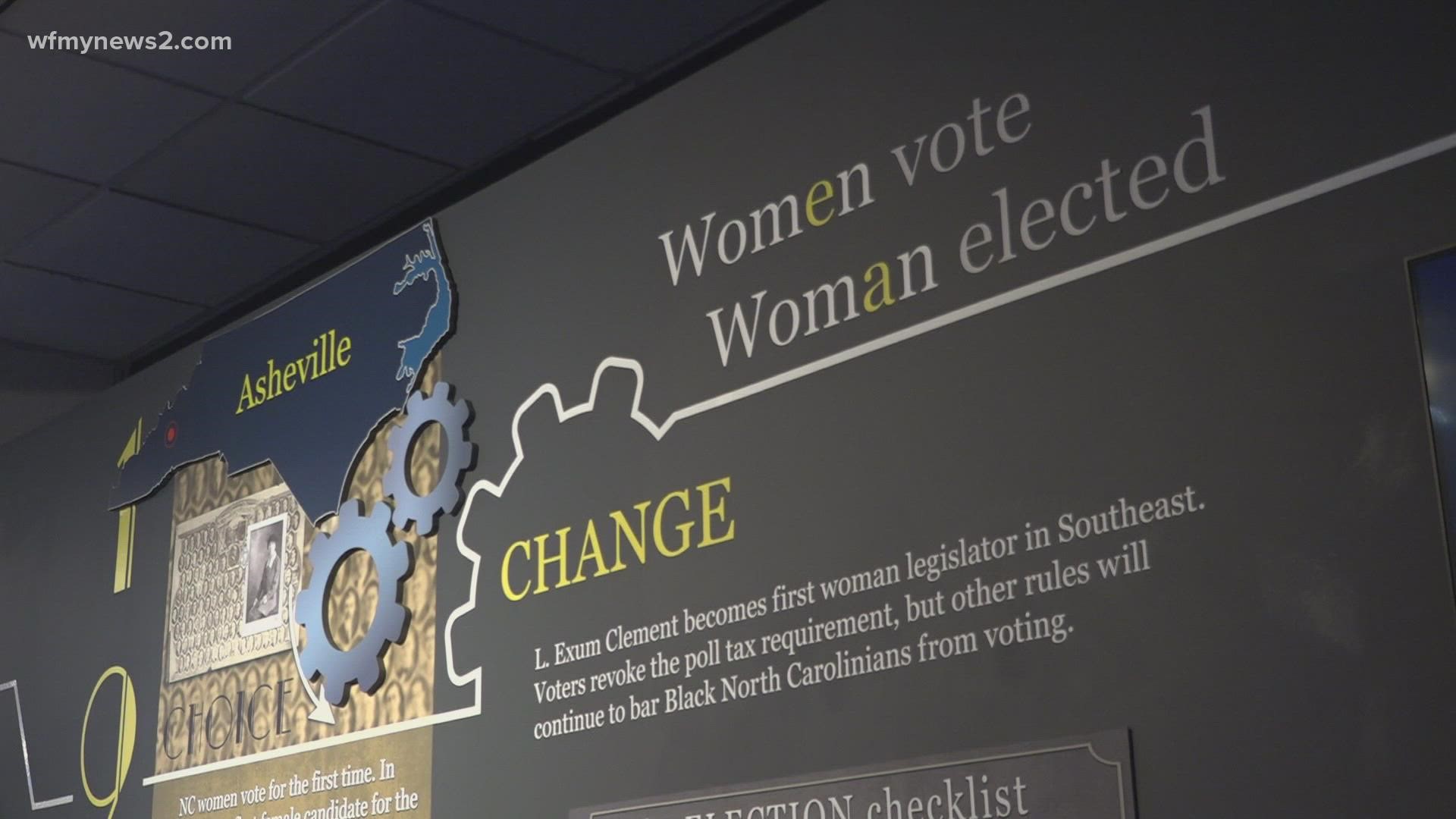GREENSBORO, N.C. — Many North Carolinians will spend the next several weeks exercising their right to vote ahead of the May 17th primary election.
The evolution of democracy has allowed citizens to have a say in who represents the government.
The Greensboro History Museum has opened a new exhibit called ‘NC Democracy: Eleven Elections' to show the many forms democracy took over 11 state elections.
The exhibit starts with the 1776 election. Glenn Perkins, the curator of community history at the museum said they chose election years with interesting stories that brought about change.
“We wanted to see how those elections opened up opportunities and presented challenges for people to claim their right to vote here in North Carolina,” Perkins said.
One example of this is when North Carolina A & T State University graduate justice Henry Frye become the first black legislator in the North Carolina general assembly in the 20th century.
During the 1970 election, Frye wrote a bill to take the literacy test out of North Carlina law.
Voters approved, removing a barrier that kept certain groups of people from being able to vote.
Carol Ghiorisi Hart the director of Greensboro History Museum said some of the restrictions imposed on voters in the past are still present today.
“Some of the same issues that were there from the beginning are still with us today. How easy it is to get to where you vote and what is required, that can be manipulated, Hart said. “These are things that seem reasonable but when you look at it it's often very targeted to make it difficult for people to vote.”
Bringing the exhibit to life took two years of research and meetings with scholars and historians from across North Carolina.
There are artifacts and essential pieces that bring history to life.
"There are cool things like we didn't know about the history of the secret ballot," Perkins said. "It's something we take for granted, that no one is going to look over our shoulder and know how we're voting. That's a late addition that didn't come until the 1920s.”
The exhibit focuses on elections from 1776 to 2010, but there are themes and objects that surround the 2020 election and voting during a pandemic.
“People have worked hard for 250 years for you to have the right to vote," Hart said. "To not exercise that right you're turning your back on the blood sweat and tears of generations of people.”
The exhibit is free and will run well into 2023.
Gallery updates and programs will be held in exhibit rooms. click here for programing.
The history museum is open every day but Monday until 5 p.m.

